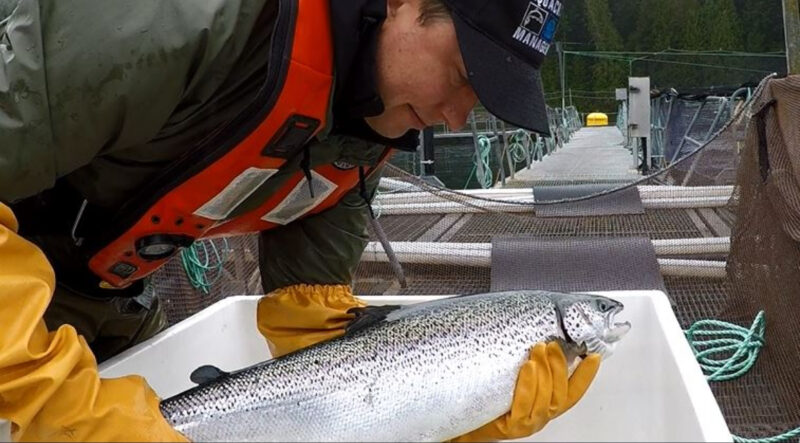Science not politics should drive sustainable aquaculture policies
The impact of recent political decisions relating to aquaculture in British Columbia and Washington equates to the direct loss of hundreds of full-time salmon farming jobs
Guest Commentary
Timothy Kennedy
The recent political announcement of steelhead trout farm closures in Washington State is an unacceptable decision for North America given the shared U.S. and Canadian commitments to ensure access to safe, secure, and sustainable food, at a time of significant global uncertainty.
A similar political decision to close 17 salmon farms in British Columbia in 2020 was fortunately overturned by the courts, concluding the Minister of Fisheries had “breached procedural fairness” and failed to provide reasons for her decision. Aquaculture companies and Governments (Indigenous and non-Indigenous) are now engaging on the matter.
For more than 40 years, our Canadian aquaculture sector has strived to meet the growing demand for food through sustainable practices. Almost all the salmon produced in Canada is farm-raised, and the sector provides an important, year-round source of fresh, climate-friendly, nutrient-rich protein to millions of people in Canada, and around the globe. Farm-raised salmon is the most environmentally sustainable animal protein on the planet, with the lowest carbon footprint.
We could provide so much more if decisions about the growth of aquaculture were based on science instead of politics. Canada needs more locally produced food, not less. It is critical that decisions that impact and risk the nation’s food security and thousands of jobs are led by science- based, factual information and awareness.
Shuttering sustainable ocean farms casts a wide net of devastating consequences. Closed farms lead to production gaps in supply chains at a time of unprecedented price volatility at the grocery store, which will drive higher costs to families. Supply interruptions or shortages will create reliance on foreign fish farm imports that may not have the same critical infrastructure or stringent environmental protections and food safety regulations as British Columbia and Canada.
Closing any fish farm rips away hard-to-find jobs from coastal communities. The impact of recent political decisions in British Columbia and Washington equates to the direct loss of hundreds of full-time jobs.
There is wide agreement that wild Pacific salmon stocks in B.C. waters have been diminishing for decades, predating salmon farming which began, in part, to address this decline. However, the recovery of wild populations through the Department of Fisheries and Oceans (DFO) Pacific Salmon Strategy Initiative will take generations and even then, will fall far short in meeting the growing demand for nutritious seafood in Canada and around the world.
We have a powerful moment in time to create a complementary system of ocean stewardship where salmon farming and wild salmon conservancy work together for the common good. The science on this issue is clear: Farming salmon increases the human food supply with minimal impact on the natural habitat or life cycle of wild salmon.
Where there is a need for more science to further clarify issues or concerns, Canada’s seafood farming community is committed to supporting this.
Canada is a world leader in aquaculture science and technology .
With the longest coastline of any country, we have the greatest cold-water aquaculture opportunity in the world. As the global population continues to grow, Canada is in a unique position to provide salmon and other species of fish, shellfish, and seaweeds to the world in a sustainable way. A way that creates economic growth in coastal communities and contributes to Canada’s goals to reduce climate impacts, protect our oceans and wild salmon, and provide a safe, secure food source for Canadians.
We look forward to working with other stakeholders to find solutions that also protect and restore our oceans and coasts, as we continue to grow such an important economic opportunity for Canada and Canadians. Long-term vision and investment is needed now in aquaculture, and specifically for farm-raised salmon, to ensure Canadians have access to a home-grown, popular, nutritious, environmentally responsible, and affordable food today and into the future.
Timothy Kennedy is President and CEO of the Canadian Aquaculture Industry Alliance
(Image of a salmon farm audit by DFO)

